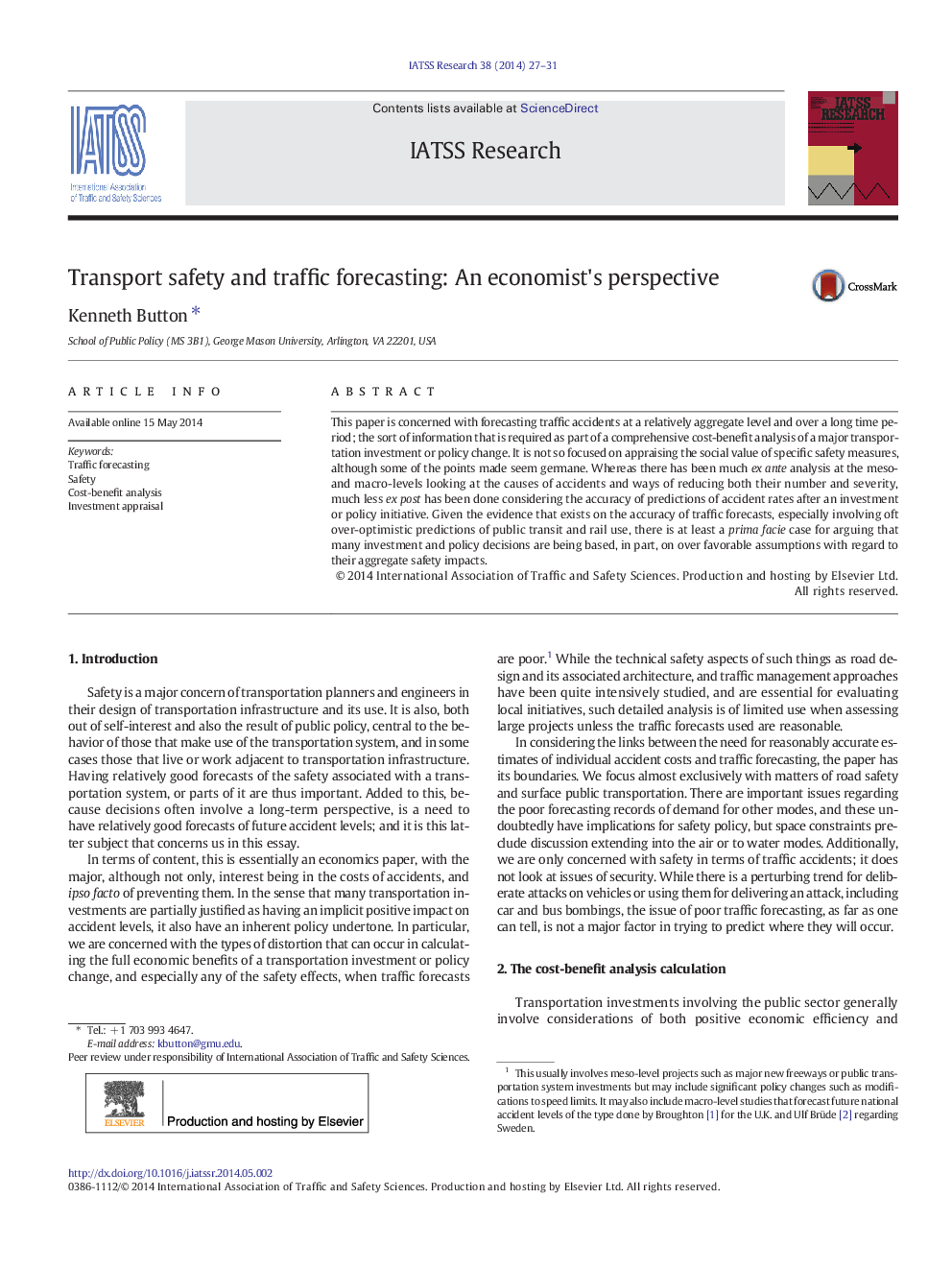| Article ID | Journal | Published Year | Pages | File Type |
|---|---|---|---|---|
| 1104632 | IATSS Research | 2014 | 5 Pages |
•Provides review of reasons why traffic forecasts are an issue in cost-benefit analysis.•Looks at the inaccuracies in traffic forecasting and effects on safety valuations.•Considers direct and indirect effects of poor traffic forecasts on accident prediction.
This paper is concerned with forecasting traffic accidents at a relatively aggregate level and over a long time period; the sort of information that is required as part of a comprehensive cost-benefit analysis of a major transportation investment or policy change. It is not so focused on appraising the social value of specific safety measures, although some of the points made seem germane. Whereas there has been much ex ante analysis at the meso- and macro-levels looking at the causes of accidents and ways of reducing both their number and severity, much less ex post has been done considering the accuracy of predictions of accident rates after an investment or policy initiative. Given the evidence that exists on the accuracy of traffic forecasts, especially involving oft over-optimistic predictions of public transit and rail use, there is at least a prima facie case for arguing that many investment and policy decisions are being based, in part, on over favorable assumptions with regard to their aggregate safety impacts.
